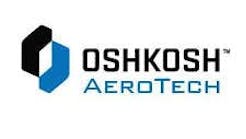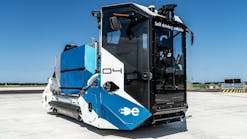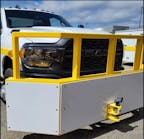FUELSTAT One Detects Microbial Contamination in Jet Fuel On Site
Conidia Bioscience has launched FUELSTAT One, a new test kit to join the FUELSTAT range designed to rapidly detect microbial contamination in jet fuel to prevent operational downtime and safety issues. FUELSTAT One can be used throughout the fuel supply chain, from storage terminal to wing tank, offering a comprehensive overview of the fuel's quality.
FUELSTAT One is a simple, rapid lateral flow test conducted on either free water or fuel phase samples to detect a broad range of microorganisms. It provides a fully quantitative contamination value in just 20-30 minutes. Similar to how a COVID-19 lateral flow test identifies markers of infection, FUELSTAT One detects markers of bacteria and fungi that can grow in jet fuel, potentially causing operational downtime, corrosion, and severe safety issues.
Microbial contamination in aviation fuel poses significant risks to aircraft safety and performance. Microorganisms such as bacteria, fungi, and yeast can proliferate in fuel tanks, leading to biofilms and sludge formation, which can clog fuel filters and obstruct fuel lines, causing engine malfunctions or failures. Additionally, microbial activity can produce corrosive by-products that degrade fuel tanks and components. Contaminated fuel can also reduce engine efficiency and increase emissions. Regular monitoring, maintenance, and proper fuel storage practices are essential to ensure fuel cleanliness and maintain aircraft reliability, safety, and efficiency.
Jay Patel, head of Innovation at Conidia Bioscience, says: “After years of development, the introduction of FUELSTAT One represents a significant advancement in microbial detection for aviation fuel and redefines the industry benchmark. Just like the established FUELSTAT Plus test kits, which detect fuel-degrading micro-organisms in minutes, the new FUELSTAT One test kits enable a single person to conduct tests at the tank using just four drops of fuel sample, following step-by-step video test instructions via the app.”
These tests are conducted on-site, so complying with ASTM D6469 guidance for testing for contamination within 24 hours. No laboratory is required, avoiding time delays and associated expenses.
“Unique to the world of fuel testing, FUELSTAT test kits are supported by a FUELSTAT Result app that provides instant test results and a PDF report that can be shared worldwide. Registered users can manage results from all tests conducted by their team globally, in real-time, at the touch of a button,” concludes Patel.
Quantitative test results obtained using FUELSTAT One across assets and locations enable the identification of hotspots and trend analysis to inform future fuel maintenance procedures.





